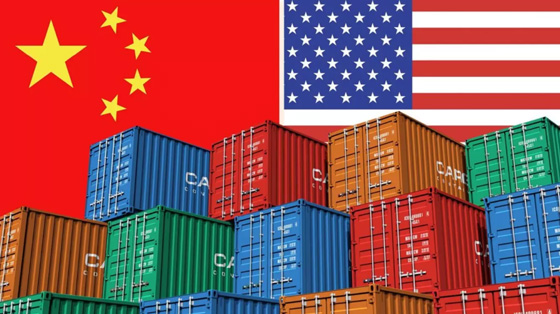Zhou Xiaoming, Former Deputy Permanent Representative of China’s Mission to the UN Office in Geneva
Dec 05, 2023
The answer is no. But you’d never know it by listening to the United States and European Union, who want to scare foreign investors away. The more China opens up, the darker the picture they paint. They won’t be impressed, no matter how hard China tries to improve.

Charlotte Yuan, Bryn Mawr College student
Dec 01, 2023
East Asia is increasingly aligning with the U.S. to curb China's semiconductor ambitions, driven by the US's indispensable role in chip design and concerns about China's credibility as a business partner, giving the U.S. an advantage in the ongoing tech competition with China.

Ma Xue, Associate Fellow, Institute of American Studies, China Institutes of Contemporary International Relations
Dec 01, 2023
An overemphasis on competition may lead to pessimism and miscalculation. While the United States appears to be upgrading measures designed to pressure China, it should also strengthen its economic and trade ties. Interdependence and mutual benefit are excellent motivators.
Xu Hongcai, Deputy Director, Economic Policy Commission
Nov 10, 2023
Forecasts are not in line with reality. China’s economy is doing better than some analysts believe. Yet, alternative strategies must be found. A multi-pronged approach will cover the void left by real estate adjustments and lead China’s economy to a promising future.
Lucio Blanco Pitlo III, President of Philippine Association for Chinese Studies, and Research Fellow at Asia-Pacific Pathways to Progress Foundation
Nov 02, 2023
The Jakarta-Bandung High-Speed Railway is a milestone project under China's Belt and Road Initiative (BRI). This project reflects China's emphasis on history and neighborhood diplomacy, underlining its role as a leader in the Global South. Additionally, there are challenges alternative initiatives face in competing with China's vast infrastructure endeavors, as Beijing prioritizes economics and geopolitics in its approach.
Zhou Xiaoming, Former Deputy Permanent Representative of China’s Mission to the UN Office in Geneva
Oct 24, 2023
Washington’s claims of non-compliance by China are a wish list in disguise. It wants to abrogate China’s rights and impose its own will in reshaping the Chinese economic model. So it should be no surprise that it cooked up a way to do that via the World Trade Organization.
Zhong Yin, Research Professor, Research Institute of Global Chinese and Area Studies, Beijing Language and Culture University
Oct 24, 2023
America’s sanctions have brought huge losses to its own companies, and Huawei has made an advanced chip anyway, despite heavy suppression. It’s a technological miracle signaling that China may have achieved technological independence.
Yu Yongding, Former President, China Society of World Economics
Oct 20, 2023
China’s economic performance has been inspiring considerable pessimism lately. In the second quarter of 2023, the Chinese economy grew by just 6.3% from a year earlier – a figure that is disappointing because of the low base in the second quarter of 2022, when pandemic restrictions were still suppressing economic activity. And in July, China’s consumer price index (CPI) entered negative territory for the first time since 2021, sparking fears of a deflationary spiral.
Wang Yiwei, Jean Monnet Chair Professor, Renmin University of China
Oct 20, 2023
China pioneered the Belt and Road Initiative, but others have followed its lead. The BRI has been hailed as the largest international cooperation platform producing the most popular public benefits in the world today.
Li Yan, Director of President's Office, China Institutes of Contemporary International Relations
Oct 11, 2023
In 10th anniversary year of the Belt and Road Initiative proposed by President Xi Jinping, the international landscape is subject to changes like never before. China’s adaptations have proved successful and hold promise for future world peace.
Back to Top

- China-US Focus builds trust and understanding between the U.S. and China through open dialogue among thought leaders.
- Our Offerings
- Topics
- Videos
- Podcasts
- Columnists
- Research Reports
- Focus Digest
- Stay Connected
-
Thanks for signing up!
- Get the latest stories from China-US Focus weekly.